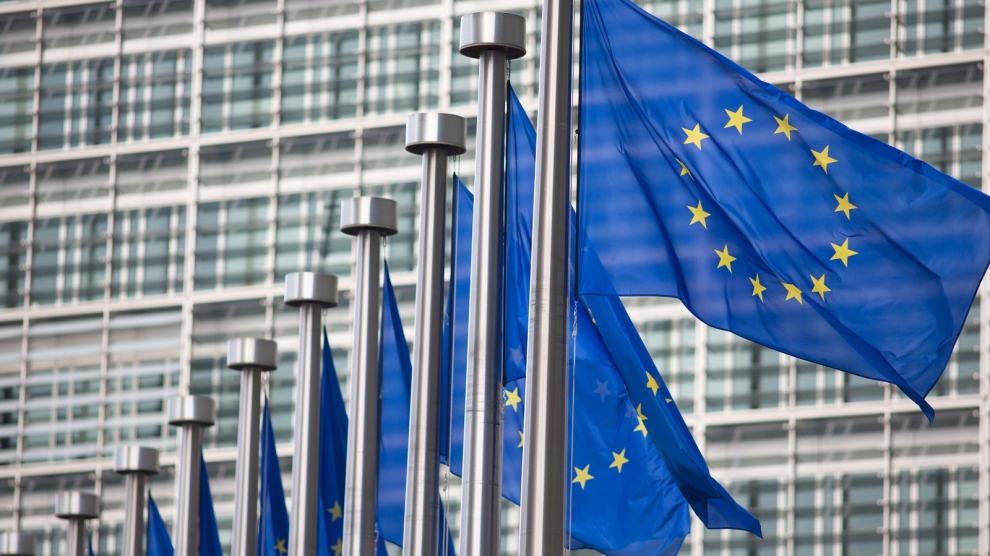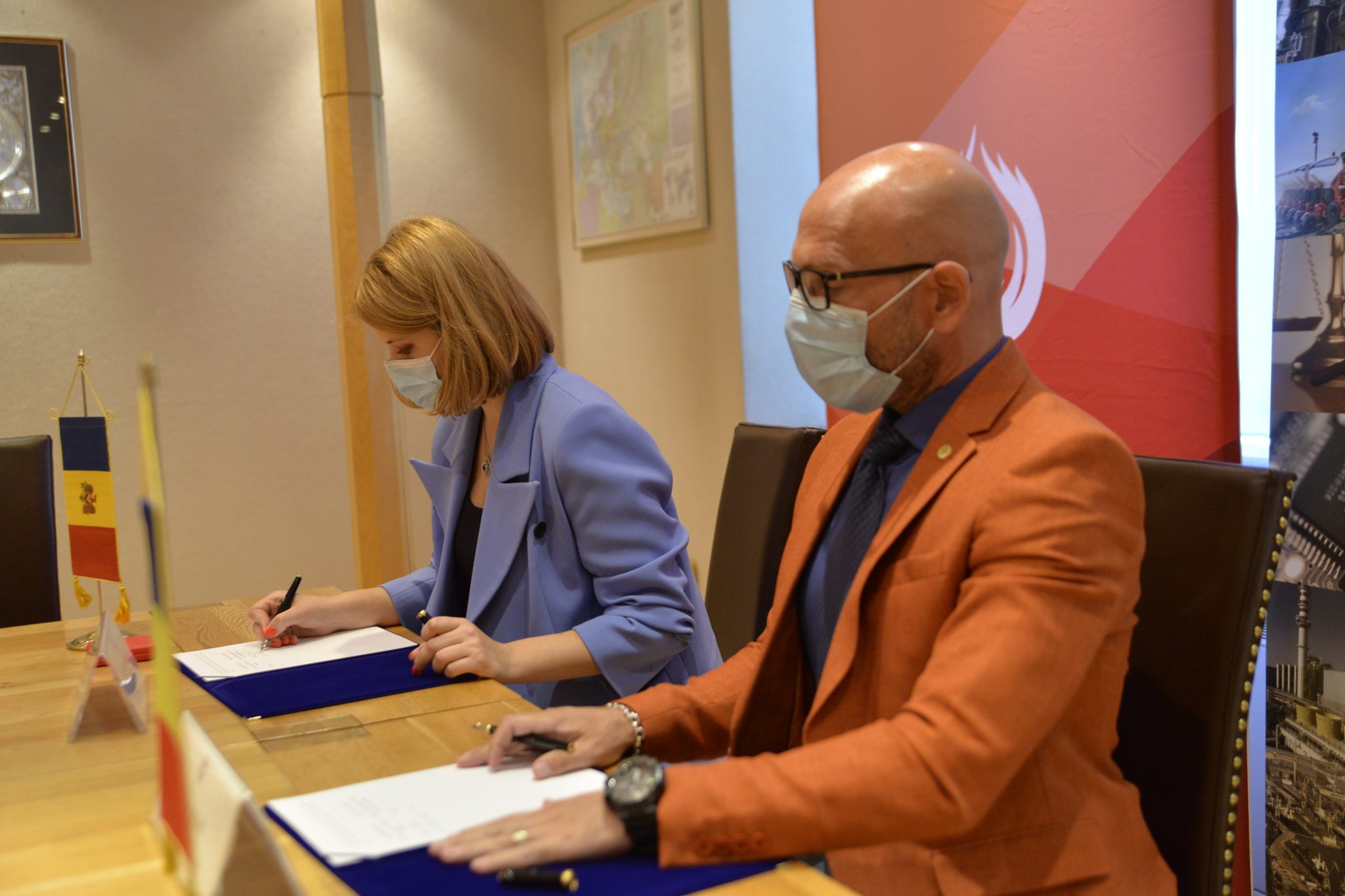Economy
Iurie Gotisan: Moldovan economy and IMF
Reading Time: 4 minutesUnquestionably, the IMF and WB are the key creditors of the Republic of Moldova. Absolutely, the assistance provided by these organisations was very important throughout years. But one should note that sometimes the policies of these organisations towards Moldova did not always meet the social security interests of population.
Unquestionably, the IMF and WB are the key creditors of the Republic of Moldova. Absolutely, the assistance provided by these organisations was very important throughout years. But one should note that sometimes the policies of these organisations towards Moldova did not always meet the social security interests of population. The relations with IMF showed that the IMF acts sometimes like a medieval wizard who prescribes the same treatment to all countries, regardless of the source of economic problems and pain of the "patient".
The IMF Mission which started its works in Chisinau last week seems to have been long-awaited, in particular by authorities. The eventual IMF assistance could probably be a "life buoy" for the Government, since the latter has categorically said that the economy is in a difficult situation and the country faces a serious political crisis. For more details, the IMF provides means rather for macroeconomic stability, while central banks of member countries are in charge with administrating them. An important aspect is that if the WB for example shows readiness to provide funding to a country, it consults the IMF and vice versa. Therefore, the positive notices by a structure are reciprocal for the other one.
The main challenge for the Government the next months will be to update or even reduce the public expenses and state debt in a moment when the population is angry because of social disparities and worries about effects of the economic crisis. Majority of economic indicators have worsened much. The unemployment is on the rise, there are signals that many people withdraw their savings from the banking system, external deficits are on the rise, and it is funded very expensively, with Moldova being part of "suspects of service" in terms of non-sustainability of deficits. Finally, Government’s capacities will be tested during negotiations with main international creditors, in particular with IMF and WB.
However, external deficits (trade and current account) could probably fall volens-nolens this year, as commercial transactions, exports and imports, as well as foreign capital inflows and others will decrease much both in the region and in Moldova. A problem occurs here: in such conditions, should a budgetary deficit be reduced much (as recommended by authorities and some economists) while the private sector bounds its activities so much? A budgetary policy based on massive reductions of expenses (as the APC warned the APL in connection with the 20-percent reduction of expenses) and often on rise of taxes (measures recommended by incumbent president, in particular, the single taxation quota), in a period when the private sector reduces its activities would worsen the economic situation for sure. This would mean entering cruelly a logic of vicious circles.
Normally, if public budgets are not to blame in principle for the size of external deficits, they may be used efficiently to reduce external imbalances. One may note here that the heaviest burden of the short-term debt of Moldova is on shoulders of the private sector. Even more, one should remember the Asiatic crisis a decade ago. The IMF-promoted stability programmes relied then on getting budgetary surpluses to reduce external deficits since the public budgets were not the origin of external debts. Those programmes had finally collapsed the economic activity, while the international economy was not generally on the decline then.
Therefore, Moldova needs cautious budgetary policies which would take into account the possibility to make any issues of bonds in conditions of international crisis, and this fact indicates a controlled budgetary deficit. On the other hand, IMF and other international financial donors should take into account the extraordinary circumstances, generalised economic decline in the world, which raises questions regarding a stabilisation policy focussed on reducing the budgetary deficit at any costs and would stress negative dynamics in economy. Budgetary collections for the first three months award victory to those who signalled unrealistic premises in elaborating the public budget this year and the failure to reach the deficit target of 1–1.5 percent of GDP, particularly because the country did not experience yet the real effects of the crisis.
Eventual scenarios of economy in terms of economic evolutions, different budgetary deficits and exchange rates are being often discussed for a while, and these talks support the idea inclusively of the one concerned that keeping in franc a 1-percent budgetary deficit of GDP in conditions of international recession is meaningless. The public deficit should not halt the economy (amendments to fiscal legislation are dangerous) though it has a limited margin of action, when the private sector does not work at maximum anymore and external markets are bounding. If budgetary collections fall, a low deficit would encourage the recession. The aid of a good agricultural year is illusory, since the agriculture is mostly tax-free, and budgetary collections depend more than 70 percent on urban economy.
Let’s not forget the situation of the currency market, which seems to be stable but the conjuncture is not advantageous at all, given the fact that the central bank has rained currency. It would be naive to believe that the leu will keep being strong. According to some estimates, it will slowly depreciate versus dollar before August (while versus Euro it is not at the level recorded 2–3 months ago), so that one may be witness of a sudden depreciation should remittances decrease much. In addition, the budget will be affected, too, since some 40 percent of its incomes come from remittances, which encourage imports and consumption.
Inflows from donors could be hit as well. Given the fact that no creditor assumes the risk to fund a country, a project, etc. which faces a crisis or runs serious risks. One should not forget that many creditors could stop funding for an indefinite term. And the IMF funding will depend on relations with the Government and capacity of authorities to reduce much the expenses and incomes, as recommended by the Fund. Finally, the authorities should consider well the statements delivered by IMF mission head Graeme Justice, who said that the "Moldovan Government has two options to sign an agreement with the IMF. The first one is STAND BY, which provides funding in market conditions (but nothing preferential) to countries which signed the PRGF, and the second one is BLEND, an intermediary programme which provides partial funding in concessional conditions.
Economy
Moldova will receive a disbursement of 36 million euros as part of the the Economic Recovery Plan

This week, the European Commission approved the disbursement of 36 million euros in grant money for the Republic of Moldova. The announcement was made by Deputy Director-General for Neighbourhood Policy and Enlargement Negotiations at the European Commission, Katarina Mathernova, who paid an official visit to the Republic of Moldova between September 13-15, together with Managing Director for Russia, Eastern Partnership, Central Asia, Regional cooperation and OSCE, at the European External Action Service, Michael Siebert.
The EU officials had meetings with President Maia Sandu, Minister of Foreign Affairs and European Integration, Nicu Popescu, Speaker of Parliament, Igor Grosu, Prime Minister of the country, Natalia Gavrilita, as well as key representatives of Government, international financial institutions and the civil society, according to a press release issued by the Delegation of the European Union to the Republic of Moldova.
Beside such topics as the EU-Moldova relations and prospects, the priorities of the reform agenda of the new Moldovan Government, preparations for the Eastern Partnership Summit at the end of the year and the Transnistrian conflict settlement, the officials also discussed the EU assistance in support of reforms and the Economic Recovery Plan for Moldova, which was announced in June with a total EU support of 600 million euros over the next 3 years.
“The first measures under the Economic Recovery Plan will shortly materialize, with the expected disbursement of 36 million euros in grant money under budget support programmes to support the authorities’ efforts to fight against the consequences of the pandemic. Moldova can count on EU’s assistance on its path to reforms and to recovery, bringing tangible results to citizens,” Katarina Mathernova stated.
The plan is based on assistance provided by the European Union through various bilateral and regional instruments, aiming to mobilize the funds in the form of grants, loans, guarantees and macro-financial assistance.
“The Economic Recovery Plan for the Republic of Moldova involves much more, not just this financial support provided immediately. It must help digital transformation, strengthen infrastructure, energy efficiency, education and support small and medium-sized enterprises,” the EU official also said.
As Prime Minister Natalia Gavrilita informed, “The Economic Recovery Plan and the 5 flagship initiatives for Moldova in the Eastern Partnership will directly contribute to the reform and consolidation of institutions, stimulate long-term socio-economic development, bring direct benefits to citizens, and unleash new economic opportunities through promoting the green agenda and digitization. Small and medium-sized enterprises (SMEs) have been hit hard by the crisis. Promoting and diversifying access to finance and reducing collateral requirements will be essential in supporting economic operators. We are grateful to the EU partners who will launch two programs to support 50 000 independent Moldovan SMEs to adapt to the new conditions.”
President of the Republic of Moldova, Maia Sandu, welcomed the decision of the European Union to disburse about 745 million lei in grant money, as the official page of the President’s Office announced. “EU support comes after a long period of freezing of European assistance, caused by former governments. We managed to relaunch the political dialogue with the European Union and resume financial assistance. The Republic of Moldova is gradually regaining the trust of its strategic partners. This European support is also a signal of encouragement for the new Government team in its commitment to clean up the institutions, fight corruption and launch development programs in the country,” said Maia Sandu.
Photo: unknown
Economy
Romania and Moldova signed a partnership memorandum pledging to cooperate in promoting their wines

The Chamber of Commerce and Industry of Romania (CCIR) and the National Office for Vine and Wine (NOVW) of the Republic of Moldova signed, last week, a memorandum of cooperation on organizing joint promotional activities in the markets of common interest, as the CCIR announced.
China, Japan or the USA are just some of the markets targeted by the Romanian and Moldovan institutions. The memorandum also involves advertising activities for wines from common indigenous varieties, promoting the oeno-tourist region, developing a tourist route in the two states, exchange of experience, study visits, and mutual support in identifying new export opportunities. “We are very confident that this collaboration between our organizations will lead to sustainable economic growth and a higher degree of well-being among Moldovans and Romanians,” claimed Deputy Secretary-General of CCIR, Bogdan Visan.
On the other hand, Director of the NOVW, Cristina Frolov, declared that no open competition with Romania is aimed at the governmental level of the Republic of Moldova. “This request for collaboration is a consequence of the partnership principle. Romania imports 10-12% of the wine it consumes, and we want to take more from this import quota. Every year, the Romanian market grows by approximately 2.8%, as it happened in 2020, and we are interested in taking a maximum share of this percentage of imported wines without entering into direct competition with the Romanian producer,” the Moldovan official said. She also mentioned that Moldova aims at increasing the market share of wine production by at least 50% compared to 2020, and the number of producers present on the Romanian market – by at least 40%.

Source: ccir.ro
**
According to the data of the Romanian National Trade Register Office, the total value of Romania-Moldova trade was 1.7 billion euros at the end of last year and over 805 million euros at the end of May 2021. In July 2021, there were 6 522 companies from the Republic of Moldova in Romania, with a total capital value of 45.9 million euros.
The data of Moldova’s National Office of Vine and Wine showed that, in the first 7 months of 2021, the total quantity of bottled wine was about 27 million litres (registering an increase of 10% as compared to the same period last year), with a value of more than one billion lei, which is 32% more than the same period last year. Moldovan wines were awarded 956 medals at 32 international competitions in 2020.
Photo: ccir.ro
Economy
Moldova’s hope to be a top walnut exporter and its main difficulties

The Republic of Moldova has perfect weather conditions for growing walnut trees, that creating a great potential of walnut production and trade, especially on international markets, where the demand is way higher than the product’s supply. National and international experts believe that the country’s walnut production industry is on the verge of important transformations, which could lead to increased yields, quality and competitiveness worldwide.
According to authorities, Moldova exports 34-35 thousand tons of walnuts in shell, which is about 7% of the total export of fruit and 5% of the total export of horticultural products. The export value is assessed as being $120 million, that being 57-60% of the total fruit export value and about 50% of horticultural export value. Most of walnut crops are exported to the EU countries, such as France, Germany, the Netherlands, Romania and Austria. The country’s exports were among the world’s top 10 when it comes to the highest dollar value of the product during 2020.
Viorel Gherciu, Minister of Agriculture and Food Industry, pointed out that the production in the domestic walnut industry has increased by 55% in the last five years, which ranks Moldova among the main producers in the world.
“The biggest opportunity for this industry is that we are in the geographical proximity of the largest walnut import area in the world, which is the European Union, with almost 40% of total imports in the world. We are on the EU border, with privileged relations, with an Association Agreement. We already enjoy a good relationship in working with European importers, they trust our processors. A very close collaboration has been created and this is, in fact, the guarantee for those who invest in the area,” claimed the president of the Walnut Producers Association, Oleg Tirsina.
The data provided by the National Bureau of Statistics show that there are 34.7 thousand hectares of walnut plantations in the country. 20.90 hectares are represented by orchards. 75% of planted orchards are formed of old varieties trees. 30-35% of the exported production comes from orchards, the rest comes from individual farmers and plantations along the roads. This means that the quality of walnut production is not at its maximum potential. Developing commercial plantations through orchards modernization and extension of walnut varieties would provide double yield and better quality, experts say.
Governmental support in the form of subsidizing solutions, foreign investments and credit options are indispensable for the industry development. One of the financing options is the credit line of the European Investment Bank Project. Since 2016, 15 producers and processors of nuts, almonds and hazelnuts have benefited from these loans with the total amount of investments worth 8.7 million euros. A further extension of the project would provide another 60 million euros for the modernization of the horticultural sector in general and for harvesting organic walnuts in particular.
Photo: heymoldova.com





















